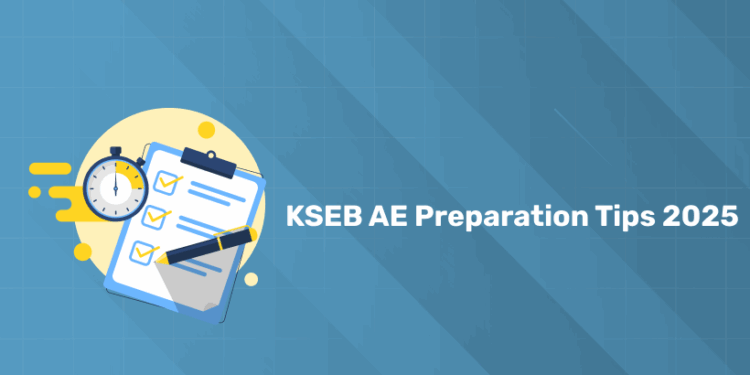Table of Contents
The Kerala PSC has announced the KSEB Assistant Engineer (Electrical) 2025 exam, with 21 vacancies under category 378/2025 and 10% in-service quota. The syllabus is now released, and the notification is live. Candidates can plan their preparation accordingly. In this blog, we share top preparation tips, study strategies, and resources to help you succeed.
KSEB Assistant Engineer (Electrical) Notification 2025 Highlights
| Particulars | Details |
| Conducting Body | Kerala Public Service Commission |
| Department | Kerala State Electricity Board (KSEB) |
| Post Name | Assistant Engineer (Electrical) |
| Category Number | 378/2025 |
| Vacancy | 21 |
| Selection Process | By Transfer (10% in-service quota) |
| Application Status | October 15, 2025 |
| Last Date to Apply | November 19, 2025 |
| Official Website | https://www.keralapsc.gov.in/ |
KSEB Assistant Engineer (Electrical) Preparation Tips 2025
1: Between the period of 1858-1947, how many Viceroys ruled over India?
The KSEB AE 2025 exam is approaching. Start by understanding the syllabus, creating a study plan, collecting materials, practicing previous questions, taking mock tests, and using online resources to crack the upcoming exam.
1. Go Through Notification:
Carefully read the official Kerala PSC notification for KSEB AE 2025. Note the number of vacancies, eligibility criteria, selection process, important dates, and exam pattern. Understanding the notification helps plan your preparation strategy accordingly.
2. Download Syllabus:
Download the official KSEB AE syllabus PDF immediately. Break it down module-wise, mark essential topics, and create a checklist. Having the syllabus handy ensures you cover all areas and track your progress without missing any important subject.
3. Collect Materials:
Gather all relevant books, reference materials, previous year question papers, and online resources. Ensure the study material covers all topics in the syllabus, including Electrical Machines, Power Systems, Control Systems, Digital Electronics, and Signals.
4. Set Study Plan:
Create a realistic monthly or daily study plan. Allocate time for each subject, revision, and practice. Break complex topics into smaller chunks and ensure a balanced schedule that avoids overloading any single day.
5. Regular Follow-Ups on Topics:
Consistently review topics you have studied. Revisit concepts weekly, solve problems again, and check your retention. Regular follow-ups strengthen memory, clarify doubts, and help identify weak areas.
6. Make Study Notes:
While studying, prepare concise, handwritten notes for formulas, important points, and diagrams. Notes help in quick revisions before exams, and writing key points improves understanding and retention of complex topics.
7. Explore Previous Year Questions (PYQs):
Solve previous year papers to understand exam trends, frequently asked topics, and question difficulty. PYQs also help manage time during the exam and identify patterns that can guide focused preparation.
| Exam | |
| 129/2024 | |
| 225/2023 | |
| 193/2014 | |
| 030/2016 | |
| 2008 |
8. Books and Materials Access:
Ensure access to standard textbooks, reference guides, and online study resources. Books on Electrical Machines, Circuits, Control Systems, Power Electronics, and Digital Electronics are crucial. Keep digital and physical copies for flexibility.
9. Mock Tests:
Take regular mock tests to evaluate your preparation. Time yourself to follow exam conditions. Analyze mistakes after each test and revise weak areas.
10. Demo Exams:
Attempt demo or model exams online if available. They help you familiarize with exam patterns, OMR sheet handling, and pressure management. Demo exams are especially useful for first-time candidates.
11. Video Lectures:
Watch topic-wise video lectures to understand difficult concepts visually. Video tutorials make complex topics easier, and revisiting lectures helps clarify doubts.
12. Online App Usage (like Entri):
Use educational apps like Entri, attempt mock tests, and daily practice questions. These apps provide structured learning, instant solutions, and track performance.
13. Peer Group Discussions:
Engage in study groups or discussions with peers preparing for KSEB AE. Explaining topics to others improves understanding, while group discussions can uncover new problem-solving approaches and insights.
14. WhatsApp Groups:
Join WhatsApp/Telegram groups for KSEB AE aspirants to stay updated on exam notifications, study resources, tips, and motivational support. Interacting with like-minded aspirants helps maintain focus and consistency.
15. Newspaper Follows – Editorial Pages:
Regularly read newspapers, especially editorial pages, to stay informed about current affairs, policies, and government schemes. General knowledge and awareness are important for KSEB AE exams.











